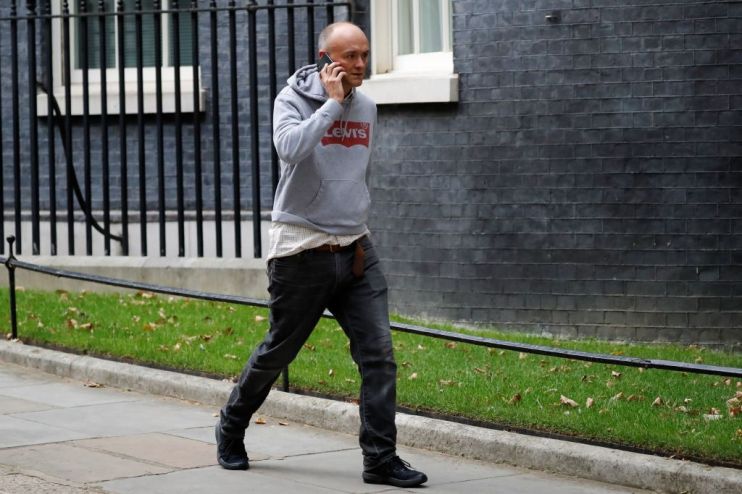Cummings cements power over ministerial aides

Boris Johnson’s top aide Dominic Cummings has handed himself more power over ministers’ advisers, as part of ongoing efforts to centralise control.
Special advisers, known as Spads, were this week sent new employment contracts stating that disciplinary matters rest “with your appointing minister and the Prime Minister’s chief of staff”, according to The Times.
Previously, they simply stated that responsibility lay with the relevant minister.
Read more: Rudd resigns over culling of rebel MPs
A clause relating to advisers’ grievances and appeals against actions has also been updated to give the chief of staff a role, the paper reports.
Although Cummings does not have an official title, he acts as the de facto chief of staff. He has already sparked controversy – and fear among advisers – by intervening to sack chancellor Sajid Javid’s Spad Sonia Khan.
Sources have told City AM Cummings is intent on shifting the structure of government towards a more presidential style, in which Johnson would have far greater powers.
As well as having power over advisers – with Cummings said to have personally approved or rejected a number of names since Johnson took office – sources indicate a growing “freezing out” of Cabinet ministers in key decision-making.
This has been evidenced by claims of former work and pensions secretary Amber Rudd, who said she did not think the cabinet was having “proper discussions about policy”.
Shortly after resigning, she told Andrew Marr she did not know who was running the country.
“If I knew that I would have perhaps had further conversations with the Prime Minister or them,” she said.
Dave Penman, general secretary of the FDA trade union for senior civil servants, told The Times the additions to employment contract marked “a significant change”.
He added: “It cuts across the ministerial code, which says that responsibility for special advisers lies with ministers and ministers are accountable to the government, parliament and the public for their advisers’ behaviour.”
A government spokeswoman said: “As has been the case under successive administrations of all political colours, all special advisers’ appointments are approved by the prime minister and they can be dismissed without notice if the prime minister withdraws his consent. The legislation is clear on this point.”
Main image: Getty